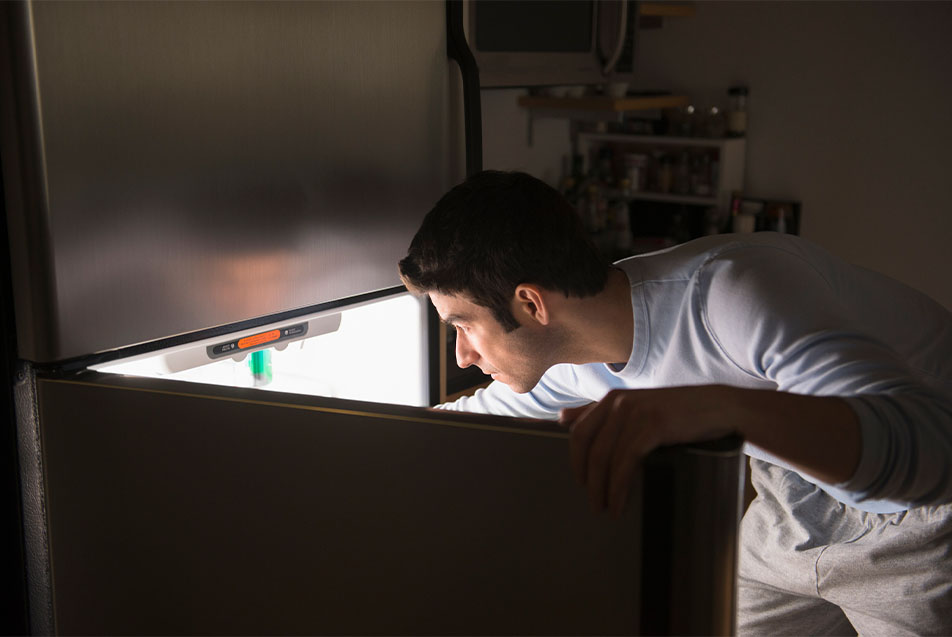
This post was written by Olivia Clark, RD, CD, clinical dietitian, Parkview Regional Medical Center.
We’ve all been there at some point ... We start to establish better eating habits by going to the grocery store on the weekend to meal prep for the week. We come up with some healthy and quick breakfast ideas, pack our lunches ahead of time, and even plan healthy dinners to make during the week. But then the implementation gets a bit tricky. Your favorite show starts at 8 p.m., you head to the pantry and grab a bag of chips and a box of chocolates, and just like that, boom! That evening snacking has completely wiped away all your hard work and diligence throughout the day. Nighttime is tough because our self-control really starts to slip, but there are steps you can take to avoid the common pitfalls.
Daytime fuel
Start by eating more during the day. Yes, more. You should not be skipping meals, not even breakfast. Studies show that people who skip breakfast because they are in a hurry or are wanting to cut calories have a 27% higher risk of heart disease. Breakfast is important because it helps us get our day started off on the right foot after we have been fasting all night. Those who skip breakfast are more likely to overeat later in the day because they are overly hungry.
Calorie cutting
When it comes to breakfast and lunch, we often think that low-calorie options are the best options. Unfortunately, these choices can leave us feeling overly hungry and unsatisfied in the evening, even after dinner. This is because most of us exert the majority of our energy during the morning and afternoon, so this is when we should be consuming the bulk of our calories. Picking only low-calorie breakfast and lunch items might be doing us more harm than good because we need more energy. If you’re overly hungry after work, try packing a couple of healthy snacks to eat throughout the day, like fresh veggies and hummus or a small piece of fruit and a handful of nuts.
Make protein a priority
Get plenty of protein-rich foods throughout the day, like eggs or Greek yogurt for breakfast and beans or lean meat/fish at lunch. Protein-rich foods are not overly calorie dense like fats but stick with you much longer than carbohydrate-dense items because it takes our bodies longer to break them down.
If you’ve already tried all of these tips and you still struggle with overeating in the evening, try looking at your routine. You might be snacking in the evening because that’s just what you do every night. It’s part of your daily habits. Try switching up that routine by playing a card game or working on a puzzle or craft to keep your hands busy while unwinding in the evening.
You might be snacking because you’re feeling stressed out. Try talking to a family member or friend, going for a walk or listening to music that relaxes you. Ask yourself if you’re really hungry. If you are, pick something healthy like air-popped popcorn or a piece of fruit instead of other less healthy options. Also, consider drinking a glass of water or other calorie-free beverage. Often times thirst can be mistaken as hunger.
Sources



